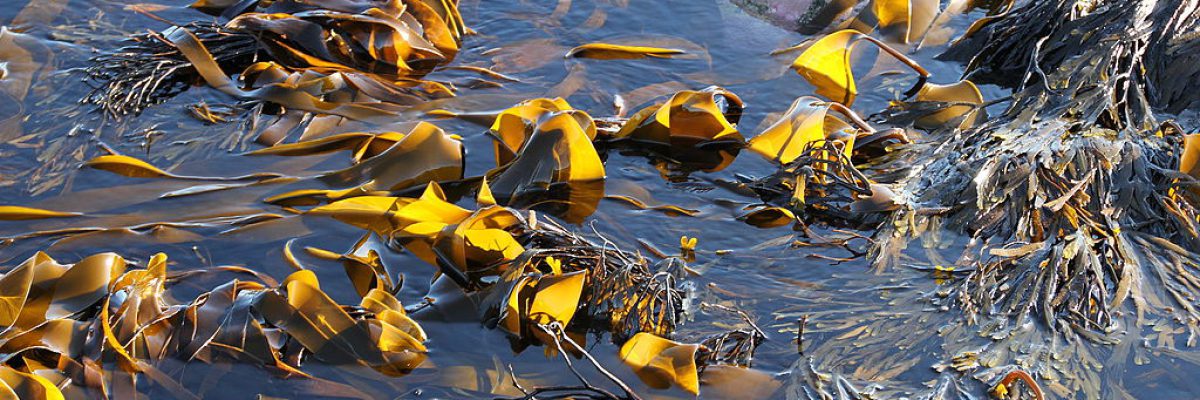Brown algae can absorb a large amount of carbon dioxide from the air and release it back in a mucus form. Different marine organisms find it hard to break the mucus into particles, and therefore the carbon is stored in it for quite a while. Scientists believe brown algae can remove 550 million tonnes a year of carbon dioxide from the air.
Photo by: https://upload.wikimedia.org/wikipedia/commons/thumb/6/6a/Laminaria_saccharina_IMG_1027_listafyr.JPG/1024px-Laminaria_saccharina_IMG_1027_listafyr.JPG




